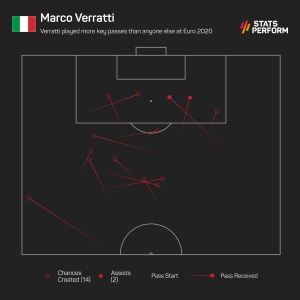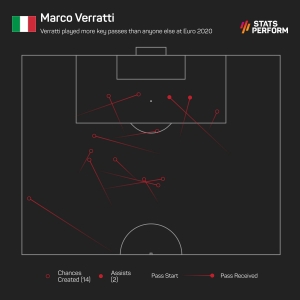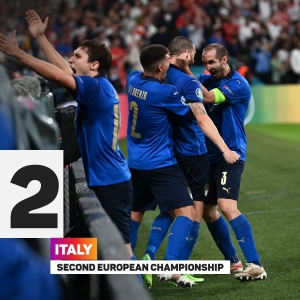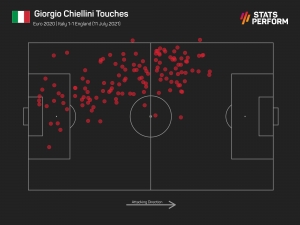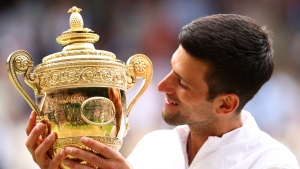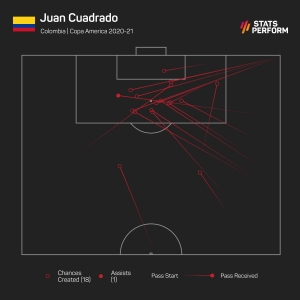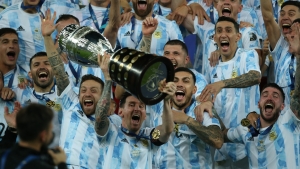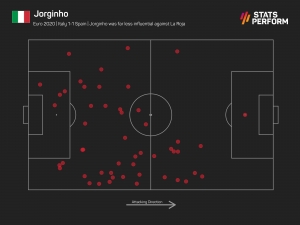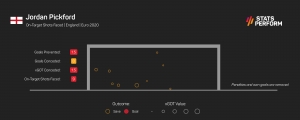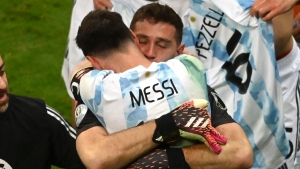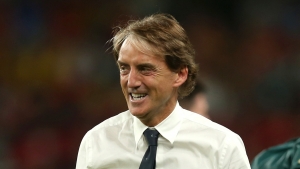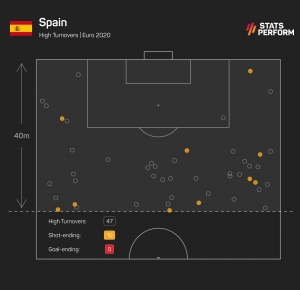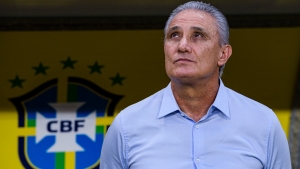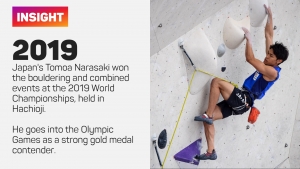A lot can change in a month. Think back to England's pre-Euro 2020 friendlies and most fans or pundits were likely highlighting the defence as their primary concern.
Harry Maguire was injured and seemingly a doubt for the entire group stage; Trent Alexander-Arnold was ruled out of the tournament; and certain decisions made by Tyrone Mings had alarm bells ringing.
Yet, here we are, four weeks on and England are preparing for a Euro 2020 semi-final having not conceded a single goal in five tournament matches.
While sceptics might suggest the general level of those opponents wasn't always world class, the fact is their five clean sheets has equalled a major tournament record – it is a genuine achievement in itself.
That record is extended to Jordan Pickford as well, with the Everton goalkeeper one clean sheet away from setting a new record for the most clean sheets at a European Championship (six).
Before Euro 2020, most will have been championing England's forward options as the team's strongest element, but now there's more than a case for the defence.
Solid and dependable
While Everton fans would insist Jordan Pickford's form has been strong for a while, it's fair to say there are many who've been surprised – rightly or wrongly – by his showings at Euro 2020.
His kicking has been an asset to England, while he's produced some excellent saves and his importance to the team is quantifiable as well.
According to xGOT (expected goals on target) conceded data, Pickford has actively prevented 1.5 goals at Euro 2020. Now, that may not sound massive in the grand scheme of things, it's actually highly impressive given the small sample of matches involved.
Only Stole Dimitrievski (2.6) and Tomas Vaclik (2.5) have prevented more goals than him in the tournament, though their respective xGA (expected goals against) figures of 8.85 and 6.7 show their records come from a larger pool of quality chances than Pickford (2.95).
Of course, away from goalkeeping, defensive excellence can be difficult to outline with statistics, particularly in good teams. For example, if John Stones was leading the charts for the most tackles, it would suggest England were playing a risky game because of the over-reliance on someone in their backline. He isn't, and that obviously reflects well on the Three Lions' organisation.
But two individual metrics reflect particularly well on Harry Maguire. The Manchester United centre-back has received great praise since returning to the team for the third group game, impressing with his reliability at the back.
The acclaim is backed up by the fact he's not lost a single aerial duel (8/8) and come out on top in 14 of his 16 overall duels since coming back into the side.
Both he and Pickford will be looked to again on Wednesday, particularly given Denmark – whose 15 direct attacks is the most of all teams at Euro 2020 – have scored 11 times so far, a haul bettered by only Spain (12) before the semis.
Shields up
Central midfield was another area of the team that had sections of the support unconvinced ahead of the tournament, with the double-pivot of Declan Rice and Kalvin Phillips deemed by many as too conservative. Granted, few Premier League fans would have looked at them and thought, "these two guarantee goals", but international football over the past nine years has given great credence to the idea pragmatism rules.
It'd now be fair to assume the majority of England fans would start both players for the remainder of the tournament, regardless of the opposition. As a pair they possess great athleticism, good ball-retention ability, work ethic and defensive nous.
Phillips has arguably been the greater eye-opener. While his advanced role against Croatia may not have developed into a continuing theme, his ability to sniff out danger and be in the right place at the right time has been notable, and as such only six midfielders could better his 28 recoveries prior to the semi-finals.
Similarly, his athleticism has translated well to aerial battles as well, with his 10 aerial wins ranking him fourth among midfielders.
Rice has generally been the one of the two with the greater defensive responsibility, as reflected by his eight interceptions, two blocks and seven clearances, all of which put him in the top five for midfielders at Euro 2020 prior to the semi-finals.
Though it's also worth highlighting that, although Rice works effectively off the ball, his influence in possession is also significant, as evidenced by the collective xG value of build-ups he's involved in being 3.1, only bettered by four Spain players.
Sure, this metric will be weighted in favour of teams who play more games and have a greater share of the ball, but he's ranked higher than the likes of Jordi Alba (2.3) and Jorginho (2.6), which speaks volumes.
So, while the defence and Pickford are certainly doing a fine job, their defensive shield is also proving highly capable.
Passive effective
In 2021, high-intensity pressing is very much in vogue, which is another reason why this England team is so interesting. While some teams almost religiously stick to such principals, the Three Lions prefer to pick their moments.
This is partly reflected by England's 35 high turnovers being the lowest of the four semi-finalists (Spain and Denmark on 47, Italy on 42), while their 98 defensive actions is also well behind (Spain 159, Italy 134, Denmark 127).
England's average starting position of 42.6 metres (also a low among the last four) shows how they tend to defend deeper, and the fact they allow 18.6 passes on average before initiating a defensive action (PPDA) further reflects Southgate's desire to have a lower line of engagement.
It's not that England don't press, they are just more passive in general. This certainly won't be a surprising revelation to anyone who has watched them at Euro 2020.
This passive nature doesn't necessarily lend itself to many people's idea of exciting football, but it seems to be having a real impact…
How it all comes together
Whether or not Southgate's masterplan was to shutdown the opposition and rely on their own clinical finishing, only he can say, though it's worked out that way so far.
Again, generally speaking England games haven't exactly been packed with excitement for the neutrals, with their matches averaging just 15.8 shots – that's the lowest of any side in the Euros dating back to at least 1980, with the next being Germany (2021) on 18.5.
Seemingly England's low defensive line – which has often comprised of a back three – coupled with two defensive-minded deep-lying midfielders has contributed to England facing just two shots on target per game, second only to Italy (1.8).
On top of that, 43 per cent of their shots faced have been outside of the box, the fourth-highest share of all teams at the tournament, and that undoubtedly plays a role in England's 0.07 xG against per shot being the lowest at Euro 2020 ahead of the semis. Additionally, their 2.95 xG against and two Opta-defined 'big chances' conceded are the lowest.
Of course, that would all be for nothing if England couldn't put the ball away at the other end, yet their 21.6 conversion rate is the highest of all 24 teams prior to the final three matches and shows just how efficient they've been, despite Harry Kane coming in for significant criticism earlier in the tournament.
Nevertheless, England's excellence at the back so far is by no means a guarantee of success on Wednesday. It only takes one moment of genius or calamity to ruin all the hard work, and that could come from anywhere, anyone.
But the data helps paint a picture of structural effectiveness in the team, as well as a collective quality that is breeding consistency.
While the relevance of the past certainly pales in comparison to what comes next, it's undoubtedly comforting to Southgate and England fans alike that they've had such a solid foundation to this point.
However, it will be defined by what happens in the next five days: crumble and England will fade, or stand firm and the Three Lions will surely roar again.
























